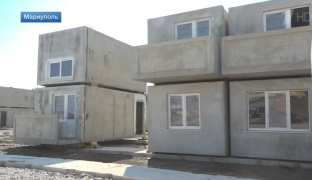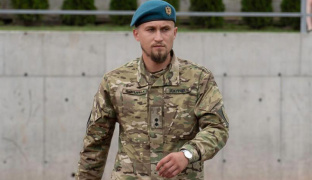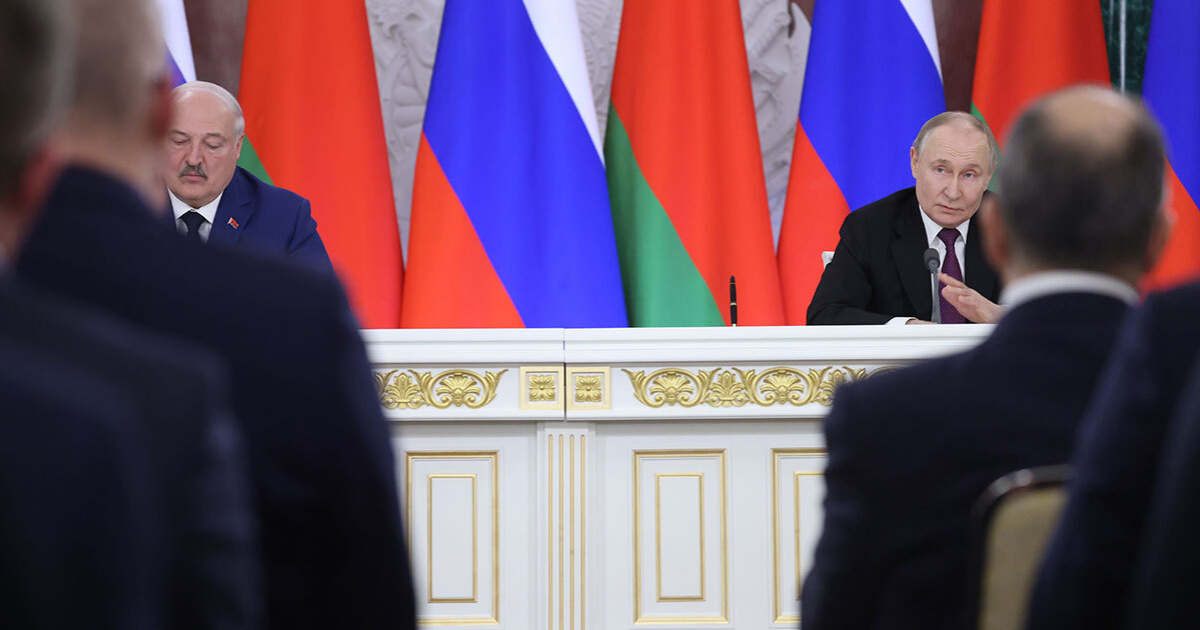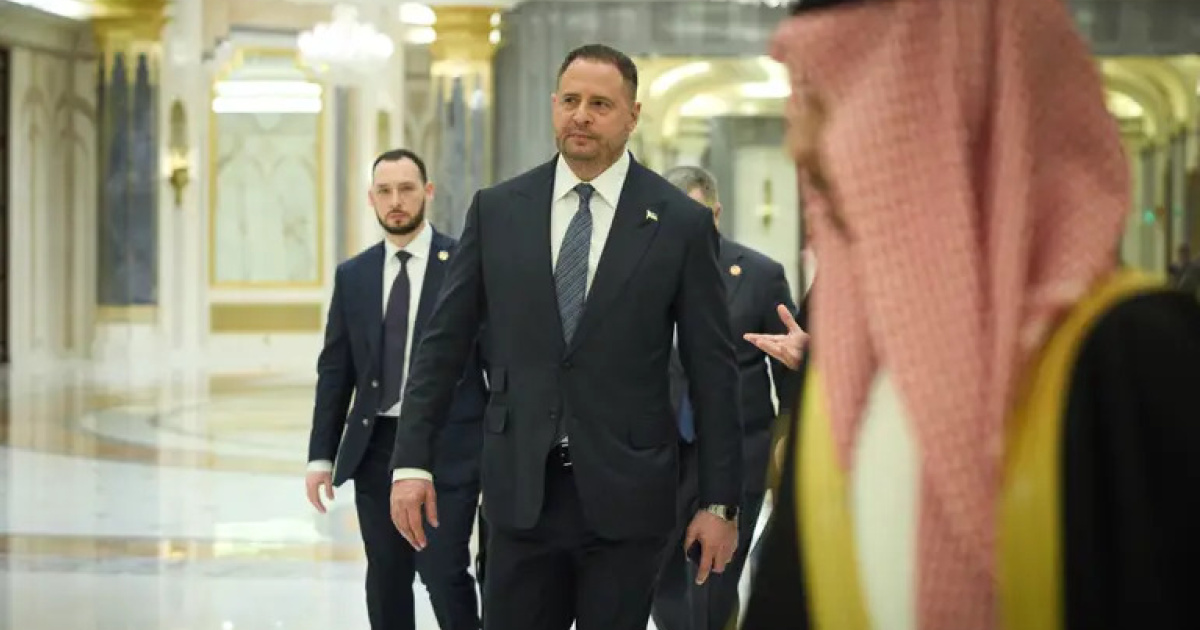Monday, August 29, began with unexpected news that the Ukrainian military had broken through the first line of defense of russian troops in the Kherson direction. Although the Ukrainian leadership avoids making official statements about a counteroffensive and asks for silence, according to information from CNN, the Armed Forces of Ukraine have already liberated 4 villages in the Kherson oblast.
At the same time, there is news that the russian federation is deploying a third army corps to the frontline and is preparing to mobilize about 90 000 military personnel.
Reserve AFU colonel and military expert Serhiy Hrabsky explained OstroV why the news from the south cannot be called counteroffensive, what future scenarios are possible and how long the war can last.

- What happened in the south yesterday?
- Yesterday, the war and active hostilities continued. They were characterized by activity increase in the southern direction. It should be noted that yesterday, the Ukrainian forces carried out complex attacks on very important enemy targets. South Operational Command reported the destruction of 13 enemy command posts. This shows that we are inflicting not only routine strikes aimed at undermining the rear of the enemy, but concentrated strikes. It may indicate that our subsequent moves may be active maneuvering actions of the Armed Forces of Ukraine to liberate our territories. The enemy is aware of this and tries to counter-attack. But in general, we are seeing a certain activation in the southern direction.
- Can we talk about the beginning of the counteroffensive?
- I would not talk about a full-scale Ukrainian counter-offensive yet. Despite the overall euphoria, I have doubts about whether we are capable of conducting large-scale offensive operations. Even the important sources say that parity between the AFU and russian troops has just been achieved. This does not mean that we can carry out offensive actions.
Sufficiently accurate and objective military science says that offensive operations can only be carried out when you have the advantage over the enemy. Therefore, I would be careful in such expressions and terms as the conduct of a counter-offensive operation.
- What would you call it?
- Strikes are being carried out, which may indicate the intentions of the Ukrainian side to carry out certain counter-offensive actions. But we are yet to see the character of such actions, their depth and tasks. It should be understood that the enemy is also clearly aware of the exceptional strategic importance of the southern direction for the further continuation of the war on the territory of Ukraine. Therefore, I have no doubt that the enemy may desperately attempt to neutralize the efforts of the Ukrainian troops to launch an offensive in the south.
- For example?
- The enemy can even withdraw part of its forces and means from other directions to prevent our possible breakthrough. Ukrainian breakthrough in this direction would mean a strategic disaster for the russians.
- Is it okay that yesterday, politicians, officials and some experts began to actively comment on the AFU’s actions? Doesn't a real counteroffensive like silence?
- You’re right. Lack of education in the field of operational security is our common problem. Operational security is a set of means aimed at covering up the real intentions and actions of one's troops in order to fulfill the assigned tasks and preserve the life and health of the military personnel participating in the operation. I understand that Ukrainian society wants to hear good news and see big victories, therefore some politicians, officials and bloggers may sound too optimistic and get ahead of themselves. But this is very dangerous.
- Why?
- We are listened to not only by the citizens of Ukraine, but also by the enemy, who can take appropriate measures and prevent such an optimistic scenario. Unfortunately, russia has enough resources to do so. Surprise is as much a weapon as a tank or a fighter jet and it must be used effectively and accurately. Any loss of surprise can lead to unpredictable and dramatic consequences.
- How can the situation in the south develop in future?
- There are at least three scenarios for the development of events in the south of Ukraine. The most optimistic one is if the Ukrainian troops still manage to break through to the banks of the Dnipro River, and then we are talking about, in fact, a catastrophe for the russian army. Negative: the advancement of the Ukrainian forces will bog down, the enemy will concentrate a large number of forces and means and push us back, possibly as far as Mykolaiv. Neutral: after tactical advances on both sides (the enemy also tried to break through in the Blahodatne area and other places a couple of days ago), the situation may freeze in the state it is in today.
- Do I understand it correctly that our tactic is to force the enemy to withdraw from the south?
- Exactly. One should understand that we cannot compete with the enemy in terms of the physical quantity of weapons and military equipment. Objectively, the russians have more tanks and artillery. But we can neutralize this advantage by destroying command posts, personnel concentration zones, depots, military equipment and ammunition. That is, you can have a hundred tanks, but if they do not move due to lack of fuel, the enemy cannot use this advantage. In addition, we constantly influence the enemy's communications, creating very serious obstacles for providing troops. This involves the evacuation of the wounded personnel, the replacement of the broken equipment, etc.
Our strikes on bridges and pontoon crossings force the enemy to reduce their presence on the right bank, it’s a frank offer to flee before it's too late. We use non-linear tactics of warfare. That is, we are not talking about a frontal attack, because we physically cannot afford such a luxury to conduct military operations in such a settlement as Kherson.
- Why?
- It will be a grueling fight. Even our experience of fighting in the east shows that a small unit can hold back quite serious forces and means, inflicting quite heavy losses. If we get involved in street fighting in Kherson, it will be a serious problem for us. Therefore, using such a non-linear tactic, applying the concept of non-contact combat (attacking the enemy without entering the zone of destruction of his forces and means), we can assume that the tasks of liberating the right-bank Kherson oblast can be completed.
- This tactic takes a long time, I guess?
- It requires a lot of time and maneuverability, which is provided by a large number of armored vehicles - something that we lack in the right quantities for offensive operations. And that is why I have a very restrained reaction to that recent inappropriate euphoria of "we are already breaking through and starting to liberate everything". The quantity and quality of our armored vehicles are still far from ideal. Our military-industrial complex is doing everything possible and impossible to provide the Armed Forces of Ukraine with this equipment, but we still do not have enough of it compared to the russian side.
- Is it possible to expect a "goodwill gesture" from the russians, or will they cling to Kherson to the bitter end?
- From a strategic point of view, they should hold out there to the bitter end. Let's call it my personal opinion, but in the last couple of days, we mention Beryslav city (Kherson oblast) quite often. If you carefully look at the map, you will see that in the event of our breakthrough in that area (the technical capabilities for this do exist) and consolidation on the banks of the Dnipro, the enemy grouping operating north of Beryslav towards Kryvyi Rih will be doomed. They will not have a chance to escape, they will be surrounded. Russia physically does not have the strength and means to evacuate such a large grouping. Its loss will be a disaster for the enemy.

- For how long will the russians be able to keep hold of Beryslav?
- It is very hard to say. In the event that our forces reach the banks of the Dnipro, time will work against the enemy. Autumn and winter are coming, and this will only aggravate the situation for the enemy, who will remain on the right bank.
From a military point of view, in the event of a clear threat, the military leadership of the russian federation should withdraw their units. But the political factor is more at work here. The loss of a bridgehead on the right bank will lead to catastrophic consequences for russia. They will be forced to forget about their previously set strategic goal of breakthrough in the Mykolaiv oblast, reaching Odesa and continuing the offensive up to the territory of Moldova.
In addition, russia will lose the possibility of even potential control over the Black Sea coast of Ukraine. This is also important for us because in the event that we reach the Black Sea coast in the Kherson oblast, we will significantly expand our zone of destruction of objects in Crimea. This is critically important for Ukraine in order to prevent missile attacks on our territories, which are carried out through support bases and ammunition depots located on the peninsula.
Thus, the loss of this bridgehead would be a disaster for russia. And they are also aware of this, so they can take non-standard measures even up to withdrawing part of their forces from the east in order to maintain a balance of forces and means in the south. This is the negative scenario that I have already mentioned. It is possible.
- What is happening on other sectors of the frontline?
- In the Donetsk direction, we are seeing desperate enemy attempts to break through our defenses, and I cannot call these attempts completely unsuccessful. The enemy uses the so-called artillery hammer tactics: when our fortifications are destroyed by continuous artillery fire, this territory is simply impossible to defend and we are forced to retreat. Therefore, we are engaged in desperate battles in this direction and exchanging artillery strikes. But we must understand that our artillery strikes are not as powerful and continuous as russian ones. The advantage of the russian federation in artillery and ammunition is obvious.
But we are seeing a situation where the enemy has not conducted offensive combat operations using several battalion-tactical groups simultaneously for quite a long time. Now we are talking about conducting tactical attempts to break through using companies and sometimes even platoons. Such an interesting tactic is noted when the enemy, regardless of losses, tries to gain a foothold on the remains of some fortifications. Then, over the next days, they desperately try to expand this gained position. This method is quite effective, they can still afford it, having enough cannon fodder and ammunition.
- Where exactly are the fiercest hostilities taking place?
- Now we are talking about active hostilities in the area of Soledar, Bakhmut and Avdiivka. At the same time, the enemy is well aware that they cannot take Avdiivka head-on, so they are trying to surround it, conducting active offensive operations to cover both the left and the right. The enemy simply demolished the Pisky settlement area while destroying one of the strongholds of our defense. We are now fortifying ourselves and trying to hold the neighborhood of Pisky, having actually lost this fortified area.
The enemy is also trying to conduct active military operations in the Marinka area. Russians intend to break through to Kurakhove, where power generating enterprises are located. That is, very heavy fighting continues there.
Another hot spot where fighting is taking place is the Kharkiv oblast. The enemy performs a two-pronged task there. Firstly, the russians are trying to prevent our troops from breaking through to the state border line, especially in the Vovchansk direction. This is a very important area, the control of which will significantly weaken the ability of the russian troops to advance in the Izium direction. Secondly, they are trying to push us back from the state border, moving closer to Kharkiv in order to expand the range of attacks on this city. That is, we are talking about fire from multiple launch rocket systems.
If the enemy advances, Kharkiv may return to being shelled by artillery, which has nothing to do with military expediency, but is related to outright terrorist activities and crimes against civilians.
We can also mention the border areas of the Sumy and Chernihiv oblasts, where the shelling continues.
- Do you think that russia has enough strength to seize new settlements?
- No. Nowadays, the density of their troops simply cannot provide the opportunity to advance in any direction. Yes, they can concentrate several battalion tactical groups and break through in a particular direction, but they will not be able to hold it.
- Recently, there was news that russia was sending a third army corps to the front. How can this make a difference?
- This will objectively increase the real number of the enemy troops and allow them to continue carrying out the same operations. But this will not lead to the collapse of the front and Ukraine will not receive a military defeat.
- What are the russians counting on then?
- The question is: "Who do you mean exactly?". You see, russia did not prepare for this war, it did not expect such turn of events. And now it is desperately improvising, having realized that it has fallen into a trap. Russia is working on the concept of prolonging the war, hoping that Europe and the civilized world will get tired of helping Ukraine and move on to more pressing issues, trying to secure energy supplies. The russians have already realized that they cannot seize all of Ukraine at the moment, so their strategic goal is to consolidate in the territories that are already under occupation. Therefore, they want to negotiate, prolong the conflict, drag out the situation and win.
- Why does russia need negotiations now? To regain strength and launch the offensive again, or simply to gain a foothold in the occupied territories?
- I would not hope so. Russia has only one strategic goal - the destruction of Ukraine as a state, the transformation of this territory into the Malorussia Federal District, the destruction of even the thought of the existence of a separate Ukrainian nation. This is what all the activities of russia are aimed at. They did not prepare for such a war, so they are trying to improvise on the go and solve their problems.
Now it is very important for the russian federation to get some kind of respite, which will allow them, having learned from past mistakes, to prepare for further offensive actions.
- Can Ukraine negotiate with russia?
- Any negotiations in the current conditions with the current political regime of the russian federation is a crime against Ukraine and against our physical existence.
- Under what conditions can we still sit down at the negotiating table?
- We can start negotiating about the width of the sanitary zone (or security zone) on the territories of the russian federation and Belarus bordering Ukraine.
- If putin's calculation works and Western aid weakens, can this force us to negotiate with russia?
- It is very difficult to say. This may force us into negotiations, but for Ukraine it will mean a national catastrophe.
- Ukrainian intelligence believes that autumn will be the decisive period in the war due to changes in weather conditions. Do you agree with this?
- I don't. We've already seen weather change in February, March and April and that hasn't reduced the fighting. Nowadays, the war is fought along the communication lines and roads. Do we usually block roads for several months due to the weather change? Of course not. Yes, in some areas, the soil may freeze, but swamps will become passable for tracked vehicles. That is, there are no purely negative or positive factors.
Of course, for soldiers it is easier to fight in summer than in winter, but these are just certain nuances that can be solved by additional planning of special events within an operation. Therefore, I would not say that everyone will be stuck due to the autumn mud.
- Earlier, our intelligence spoke about the possible end of active hostilities before the end of the year. Do you believe in such predictions?
- No, I don't believe in that. In addition, I have a question - what is considered to be active hostilities?
- What are your predictions about what will happen next?
- My forecasts are not purely military, because one should understand that the economy will win the war. The task of the military is to give it a more or less worthy form and use the available forces and means in the most efficient way.
Ukraine has already completed two major tasks - it made it impossible to seize the entire territory and stopped the enemy's offensive in all directions. We are now moving into a phase of stable war or low-intensity military conflict, which will be characterized by an exchange of artillery strikes and tactical advances. Further actions will depend on how quickly and effectively Ukraine will be able to build up its strike potential for offensive operations and whether we will be able to get ahead of the russian federation in this race.
Thus, the situation will depend on who will be the first to be ready to carry out offensive actions. The world simply does not have enough needed weapons that can be handed over to Ukraine tomorrow. These are also quite lengthy processes. This is not a matter of one month, and maybe not even one year.
- So the war can last for years?
- Yes, it can last for years. The United States entered World War II in December 1941, and the Lend-Lease started working in 1942. After that, they prepared for the invasion of Normandy for another two years. That’s your answer.
Vladyslav Bulatchik, OstroV




